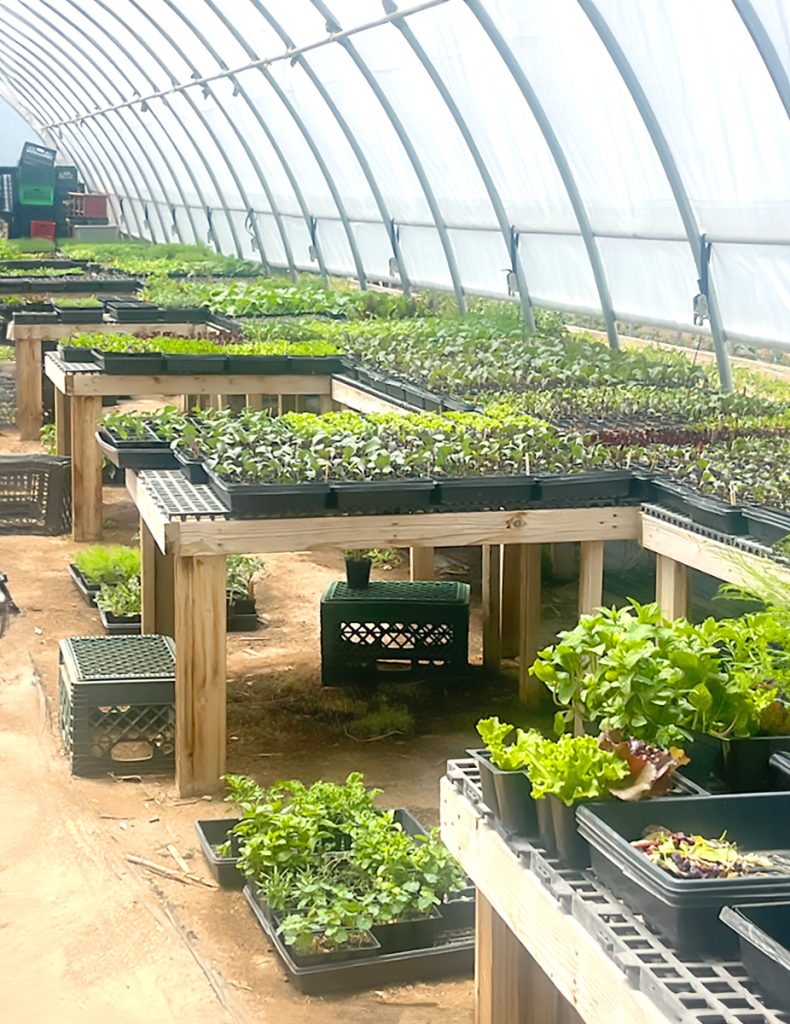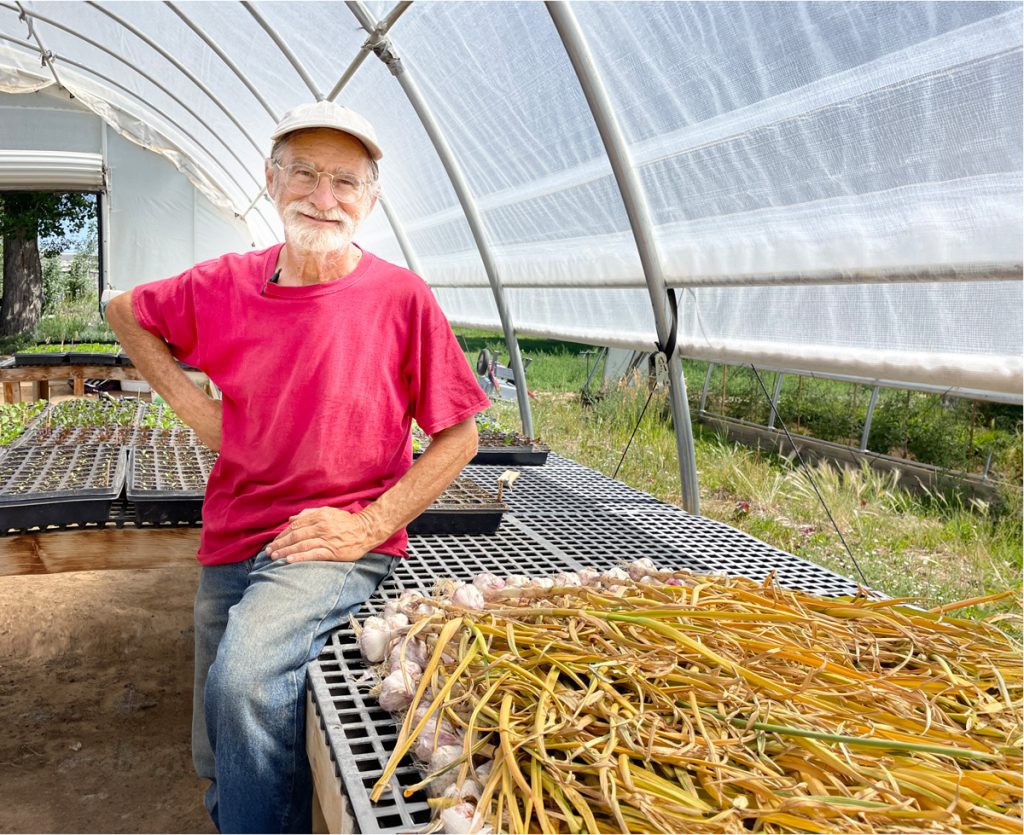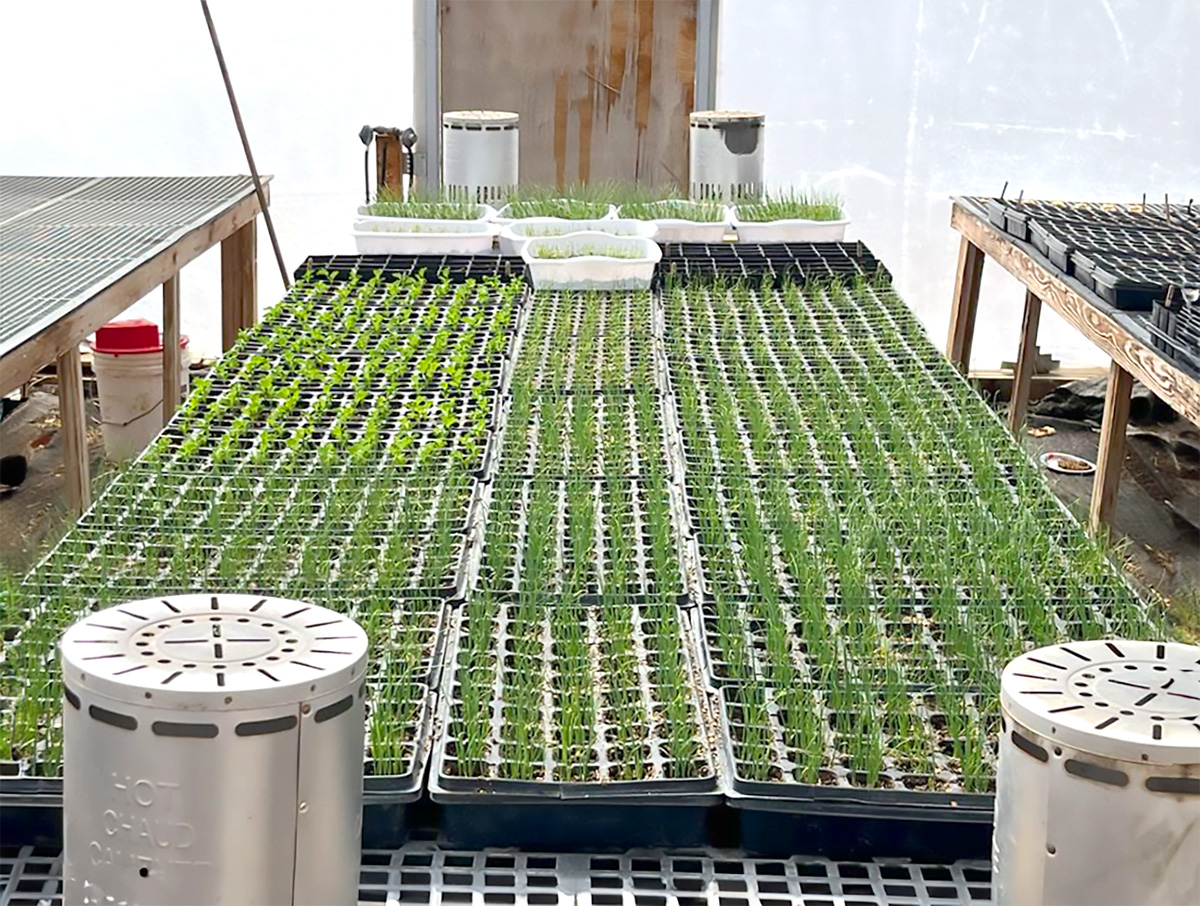


Growing produce in the arid environment of Taos County has proven difficult for many locals. Unpredictable water availability has been an obstacle, oftentimes discouraging long-term ranching and farming in the area.
Local farmer Daniel Carmona knows a thing or two about farming local produce in northern Taos County as he’s done it successfully for 46 years. A California native, Carmona says his life never really started until he moved to New Mexico in 1977 and began farming.
Carmona established and operated a farm for ten years in Arroyo Hondo where he also served as Mayordomo of the acequia. He farmed another ten years in Los Colonias, and planted his roots permanently in Cerro in 1995, where he established Cerro Vista Farm on 38 acres of irrigated land. His main crops have been vegetables, and his main customers for the past 40 years have been the regulars at the Taos and Questa Farmers Markets, plus loyal farm share customers, who have helped finance the farm operation by purchasing a share of the farm’s production each year before he plants his crops.
Having served as a Mayordomo and as a vegetable farmer, Carmona appreciated the natural beauty of acequia-based agriculture. However, he realized that with limited annual snowfall, the acequia system worked best for families with small vegetable gardens who could irrigate once per week, or with their pasture or alfalfa acreage for livestock, which could be sustained with as few as three or four irrigations per year.
For growing multiple acres of vegetables to sell, however, the need for irrigation water many times per week proved necessary. In Cerro, he found the water necessary to build a new farm designed to empower local community members to grow their own fresh produce.
Always wanting to be a farmer ever since he was a child, the past 46 years have been a dream come true for Carmona—however, they have come with a price. “Ever since I started my farm in Cerro, I have worked 80 hours per week to ensure the farm successfully functions to meet the needs of the community and stay afloat financially.”
The effects of the changing climate has only added to the work. “Over the past 12 years, the climate has warmed significantly. The growing season used to be 90 days long: now it is about 110 days long. The longer growing season has been helpful, but along with the increased warmth, extreme and unpredictable events are happening.” In 2022, the farm experienced two catastrophic summer hailstorms, which damaged 100 percent of the crops during the height of the season. While still on the rebound of this setback, in 2023, another catastrophic event—very hungry deer grazing the fields at night, destroyed all of his broccoli, cauliflower, and kale crops.
“In 26 years of farming in Cerro, I have never had deer damage the crops, so I had no elk or deer fencing in place. It is obvious that after many years of extreme drought, the deer can’t find enough to eat in the wild, so they are ranging further away from the mountains.” In order to finish out the 2022 and 2023 seasons, honoring his commitment to his employees and to the community, Carmona was forced to spend most of his retirement savings to keep it all afloat.
With rapidly changing times, including the effects of climate change, combined with his need to move towards retirement (he is 74), Carmona is actively adapting his previous business model to meet these challenges. He describes it as his “good fortune,” that one of his staff at the farm was previously an executive business consultant. Barbara “Kestrel” Andrus brought her experience in business development/succession planning to the situation, encouraging exploration of a new business model that would allow Carmona to work towards retirement, while also honoring his commitment to continue to serve the community with local produce.
Their current joint venture, Sunshine Seedlings, is the first iteration of what the future might hold: The formation of a separate business entity, (eventually entities) utilizing the existing farm infrastructure. The model offers an example of a way to “pass the torch” by facilitating others to utilize the farm as a place to launch their own businesses. Carmona is open to leasing the land and equipment, and providing mentorship to persons and organizations committed to local farming. He wants to disseminate the vital knowledge he has accrued from his many years of farming and operating a business. He is currently in dialogue with Questa High School and Questa Sangre de Cristo Market, Questa Farmers Market, the local non-profit Localogy, along with other potential participants in hopes of developing educational programs for community youth.
Carmona recalls that before roads were paved, most every family knew how to farm for themselves and did so. With the advent of stocked supermarkets in the Taos area that began in 1958, communities rapidly became dependent on purchasing foods shipped in from other locations. “With climate change and rapidly changing economies, potential supply chain challenges similar to what took place during the Covid pandemic, it is even more important to nurture future local farmers, offering this vital opportunity to learn the craft of farming, lest the practice be lost.”
Moving forward, Carmona highlights that during both good and challenging times, the farm would not exist if it were not for the many wonderful community members who have operated as customers and work-traders, many of whom have offered their time for years, many of whom he now calls friends. “It is for them and the community—that keeps us in the game.”
For 2024, the fields at Cerro Vista Farm are resting with cover crops, in preparation for what the future may bring in terms of increased community involvement and potential new business incubation.
Meanwhile, you can purchase plant starts from their flagship business, Sunshine Seedlings, which is offering a wide selection of over 50 varieties of vegetable, herb and flower seedlings for your personal gardens. Seedlings can be pre-ordered now at their website cerrovistafarm.com.




